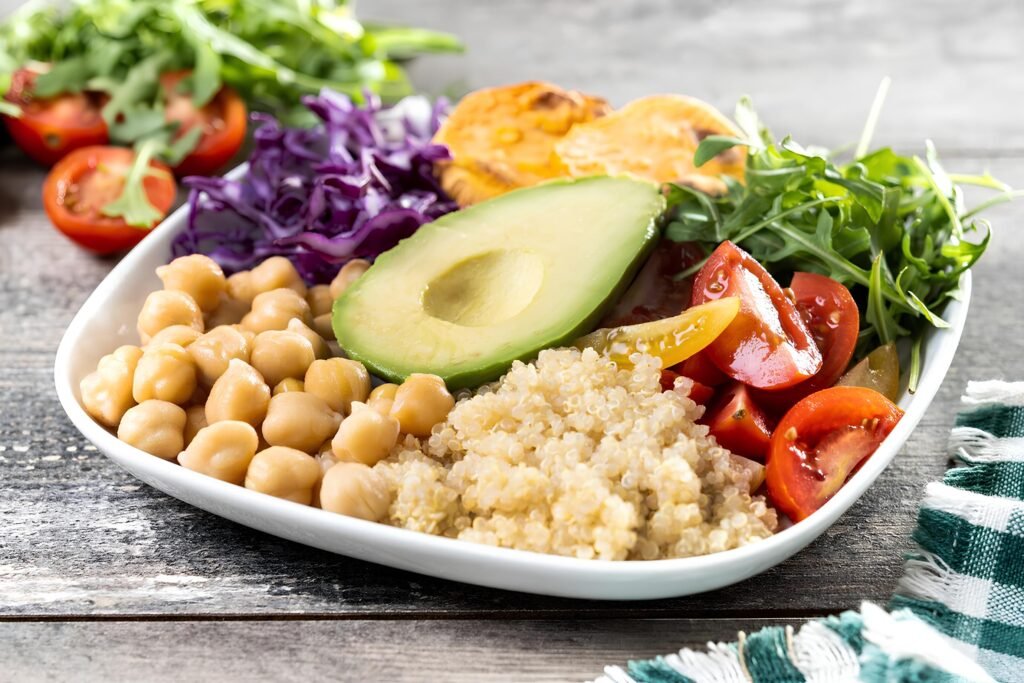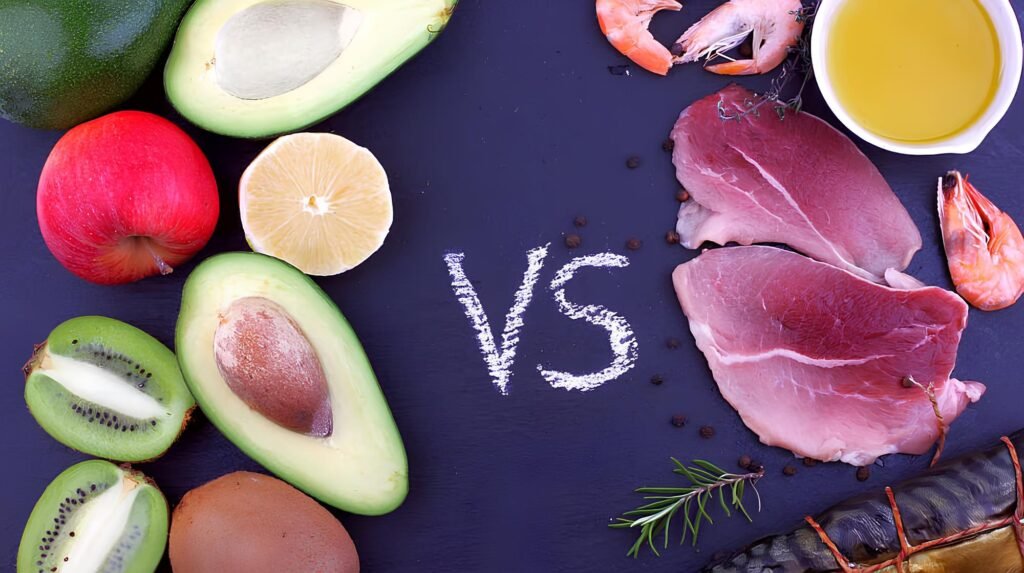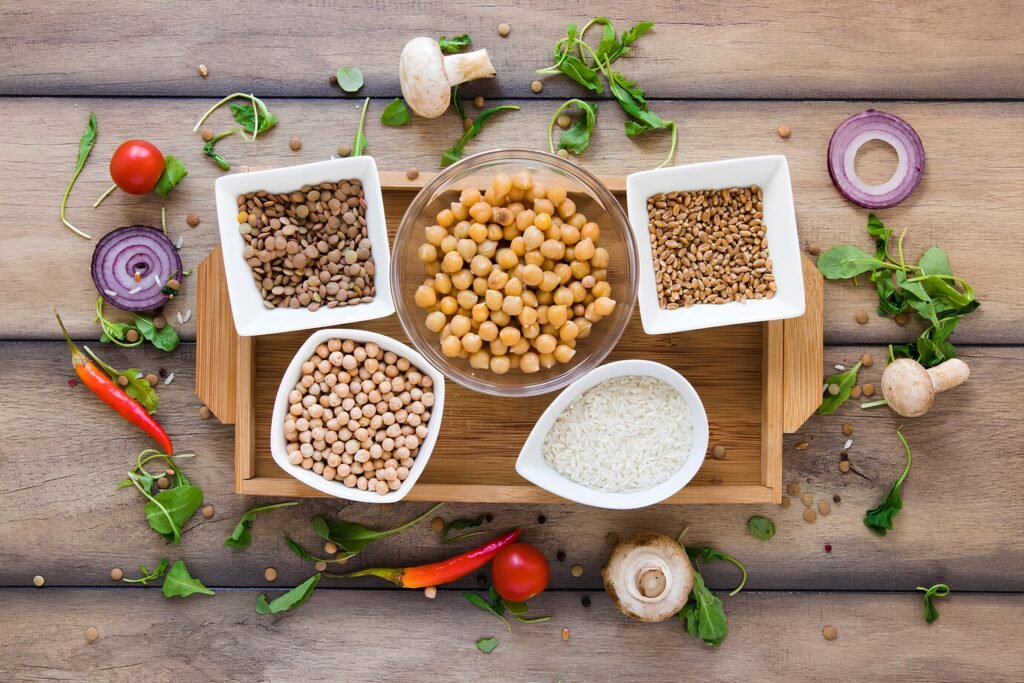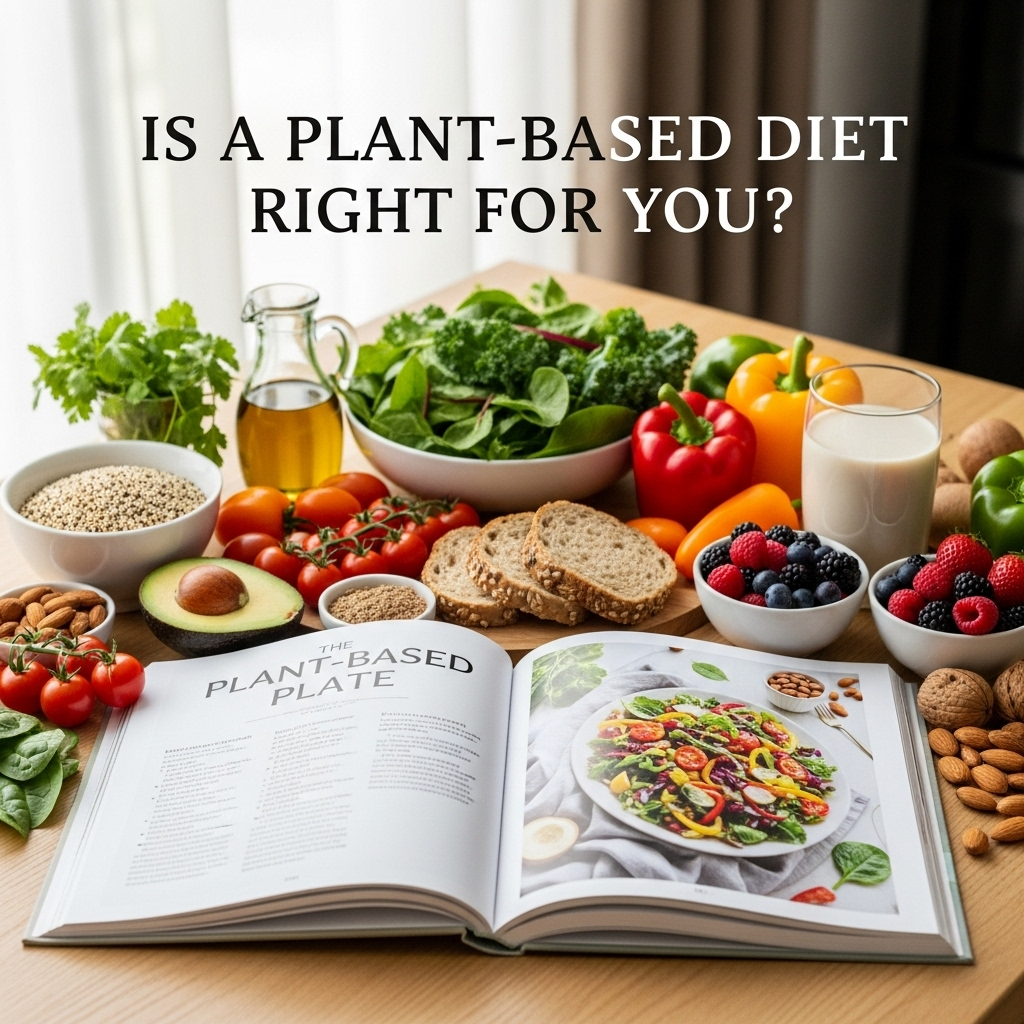As more people embrace healthier and more sustainable lifestyles, the plant-based diet has gained immense popularity. But is this dietary choice right for you? In this blog, Trek to World the benefits, challenges, and practical tips for transitioning to a plant-based lifestyle, helping you decide if it’s the right fit for your health and lifestyle goals.
What Is a Plant-Based Diet?
A plant-based diet focuses on consuming foods primarily from plants, including fruits, vegetables, nuts, seeds, whole grains, and legumes. Unlike veganism, which avoids all animal products, a plant-based diet allows flexibility. Some people include occasional animal products while keeping plant-based foods as the mainstay of their meals.

A balanced plant-based meal packed with nutrients.
Benefits of a Plant-Based Diet
1. Improved Heart Health
Plant-based diets are rich in fiber, which helps lower cholesterol levels and reduces the risk of heart diseases.
2. Weight Management
Foods like whole grains and vegetables are naturally low in calories but high in nutrients, making it easier to maintain a healthy weight.
3. Reduced Risk of Chronic Diseases
Studies have shown that plant-based diets can lower the risk of type 2 diabetes, high blood pressure, and certain types of cancer.
4. Eco-Friendly Eating
A plant-based diet requires fewer resources to produce, making it a more sustainable option for the planet.

Choosing plants over meat helps reduce your environmental impact.
Challenges of Transitioning to a Plant-Based Diet
1. Finding Protein Sources
Many people worry about getting enough protein. Thankfully, foods like lentils, chickpeas, tofu, and quinoa are excellent plant-based protein sources.
2. Meal Preparation
Transitioning may require more time in the kitchen to prepare whole, unprocessed meals.
3. Nutrient Deficiency Concerns
Key nutrients like B12, iron, and omega-3 fatty acids may require supplements or strategic food choices.

Plant-based protein options to fuel your body.
Is a Plant-Based Diet Right for You?
A plant-based diet works well for most people, but it depends on individual health goals and preferences. Consider it if:
- You want to reduce the risk of chronic illnesses.
- You’re looking to lose or maintain weight healthily.
- You care about environmental sustainability.
However, those with specific medical conditions or dietary needs should consult a nutritionist before making significant changes.
Tips for Transitioning to a Plant-Based Diet
1. Start Small
Begin with one plant-based meal a day and gradually increase.
2. Experiment with Substitutions
Swap dairy milk for almond or oat milk, and use beans or tofu instead of meat in recipes.
3. Explore Plant-Based Recipes
Try new dishes to keep your meals exciting and enjoyable.
4. Plan Your Meals
Preparing meals ahead ensures you have nutritious options on hand, avoiding the temptation of processed foods.

Planning ahead makes plant-based eating easy and fun.
Conclusion
Switching to a plant-based diet is a journey that offers immense health and environmental benefits. While challenges exist, they can be overcome with proper planning and a willingness to experiment. Whether you fully commit or adopt a flexible approach, prioritizing plants in your diet can lead to a healthier, more sustainable lifestyle.







0 Responses